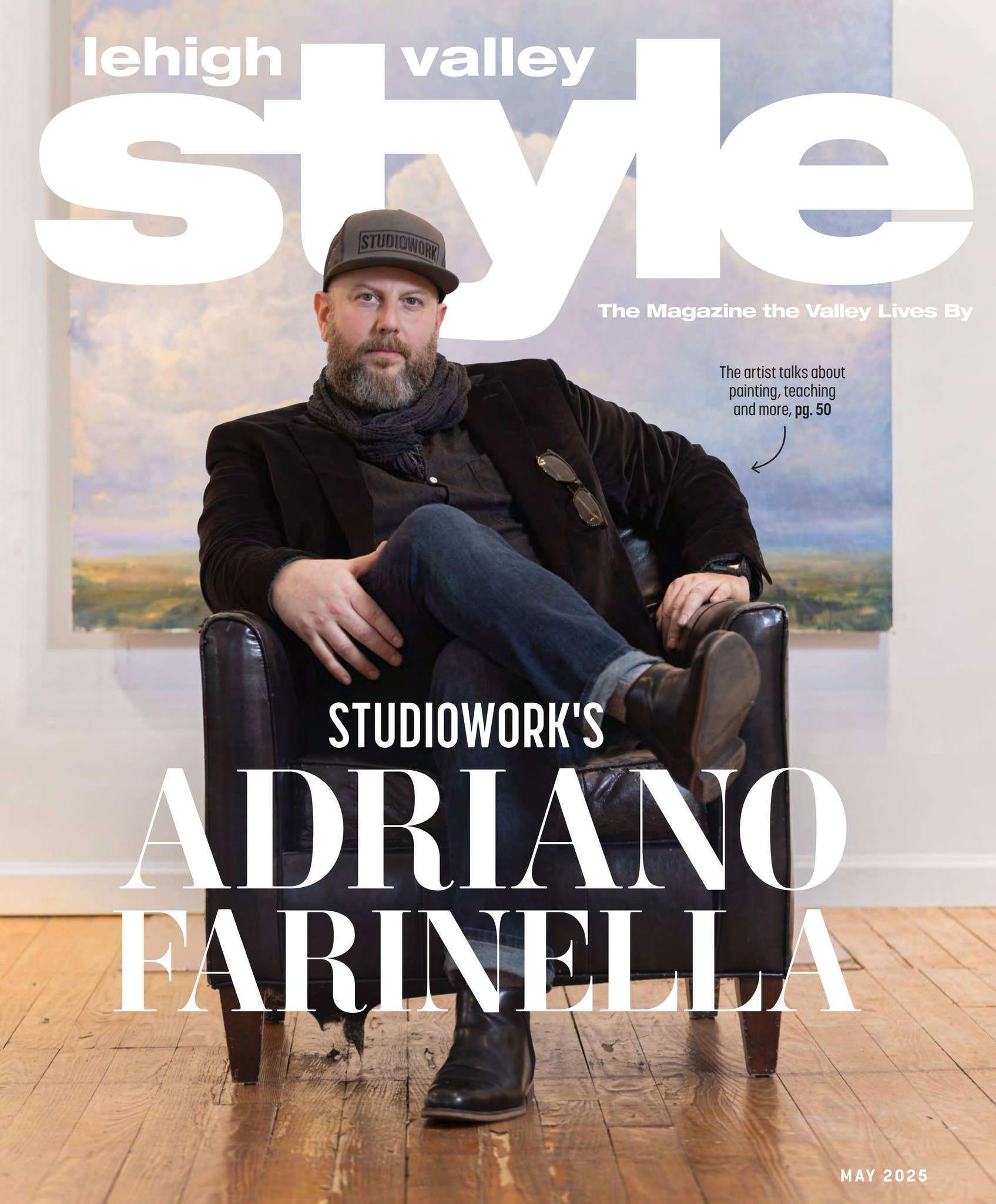Desiderius George Dery has been dead for more than 80 years, but apparently he can still come through in the clutch. Herve Rousseau, the current owner of Dery's palatial home in Catasauqua, can remember a time a few years ago when his quest to restore the sprawling estate to its Gilded Age glory wasn't going so well. “I was broke,” he says. Putting the place on North 5th Street back on the market seemed to be his only option. One day Rousseau went to a spot inside the home where he says he feels close to Dery (although he won't reveal the exact location) to make an otherworldly appeal: “I said, ‘Mr. Dery, I'll make a deal with you. Help me out, and I'll pull the house off the market.'”
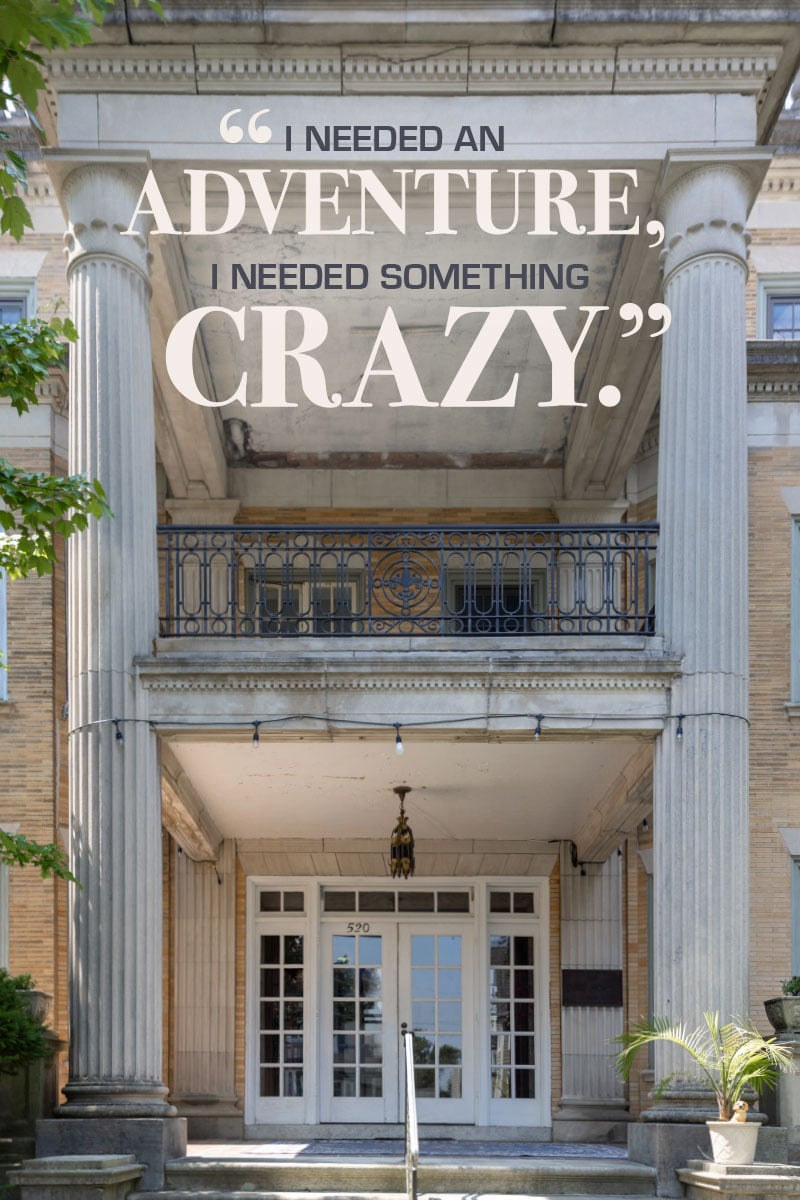
Later that same day, Rousseau says, he found out his application for a loan from the federal government's Small Business Administration had been approved. He immediately called his broker and told him to pull the listing. The dream wasn't dead. The renovations could continue.
If the clichés are to be believed, it's typical for men of a certain age to splurge on something like a flashy sports car. But Rousseau's 50th birthday present to himself was a 24,000-square-foot fixer-upper in a town that he had previously never visited. Rousseau, a native of Paris, France, came to the United States at the age of 25 and had made a name for himself as a successful restaurateur in New York City—he currently owns the champagne bar Flute—but as the milestone birthday grew larger on the horizon he was looking for a new project. “I needed an adventure, I needed something crazy,” he says.
I think he was a bit of a romantic person...which I find myself as well.
The Dery Mansion showed up on a list of historic properties for sale around the country. With his father and stepmother in tow, he toured the grounds and found out just how big the home truly is. (It's 56 rooms, by the way.) “I lost my father along the way. It took me like half an hour to find him,” Rousseau recalls. Afterward he heard two voices inside his head: one telling him he'd be crazy to entangle himself with such an uncertain venture, and the other insisting if he didn't take the plunge now, he never would. He chose to adhere to the advice of the latter and set about doing some research on the Lehigh Valley and Dery himself. “I think he was a bit of a romantic person and a bit of a dreamer, which I find myself as well,” Rousseau says.
Dery (his last name was originally spelled Deri) was born in 1867 in Vienna, Austria. He learned the trade of silk-making at the Vienna Textile Academy, and in 1887 set sail for what was then the silk capital of the United States: Paterson, New Jersey. Ten years later he decided to move to Catasauqua and open a silk mill of his own. According to state historians, by 1914 Dery had 15 mills in Pennsylvania and one in Massachusetts, employing some 4,000 people. He came to be known as the “King of Silk” because he was the world's largest individual silk manufacturer.
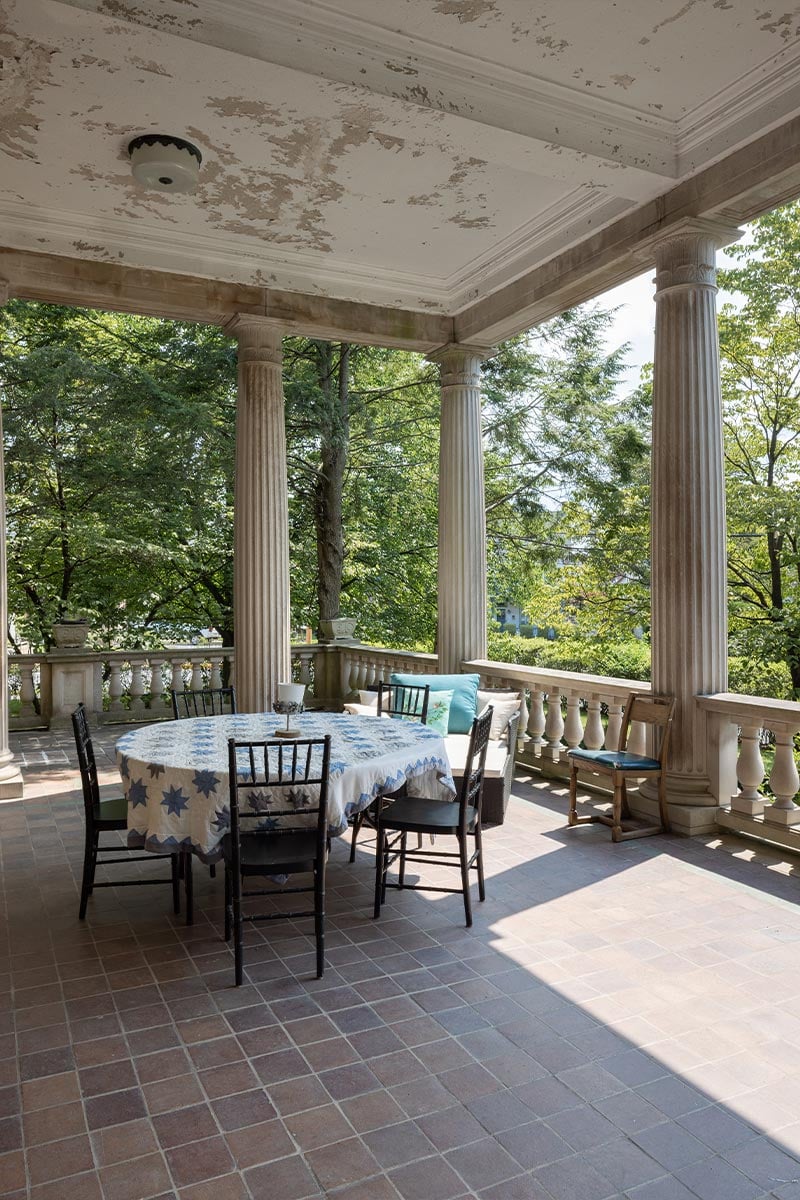
Naturally, every king needs his palace; Dery began work on the home at 520 5th Street in the early 1900s (some sources say 1901, others say 1910; most agree the home was expanded in 1917). Eventually the estate, with its 12-car garage, carriage house and garden, would consume half of a city block, and consume about $1.5 million of Dery's money (about $22 million by today's standards). Naturally, Dery spared no expense inside the walls of his fortress-like, Neoclassical dwelling: Tiffany stained glass (including a breathtaking skylight), marble fireplaces, a pub, an observatory for stargazing and even a pool in the basement. The exterior exuded a regal air as well, with an entryway flanked by a pair of towering, two-story columns; pilasters; cornices; and a multitude of balconies and terraces.
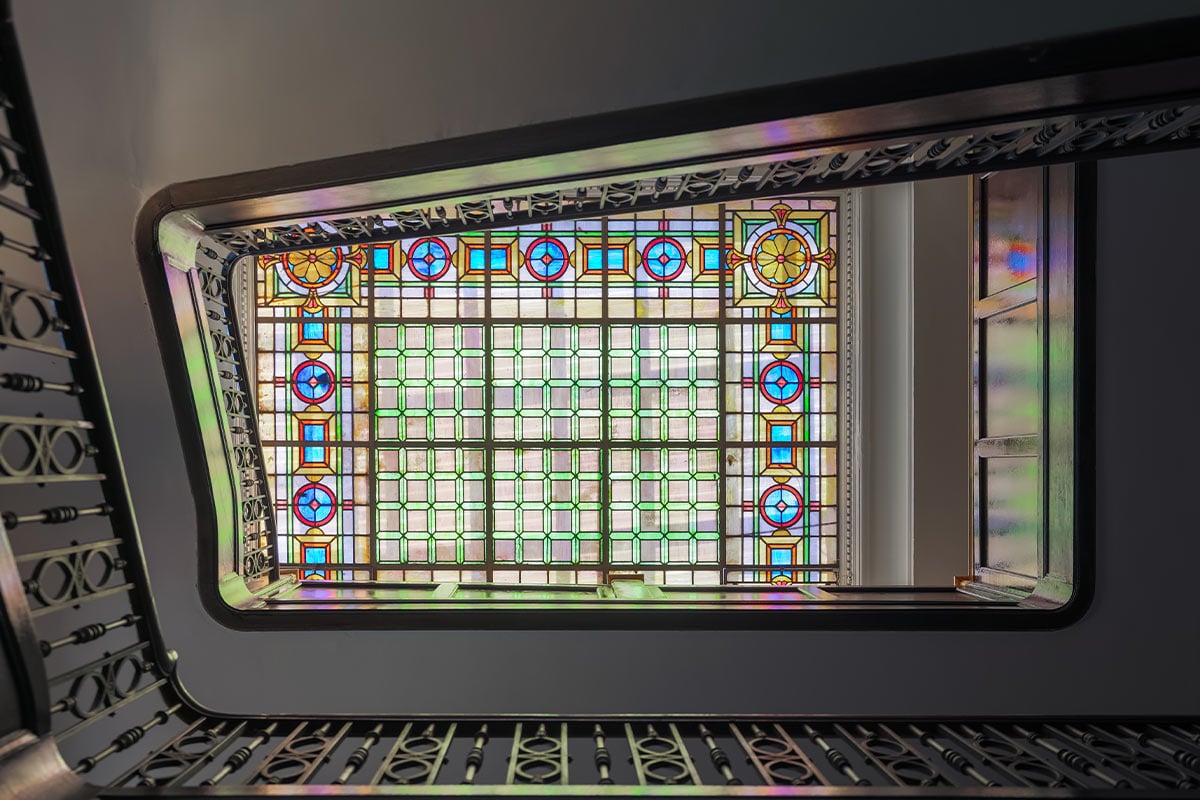
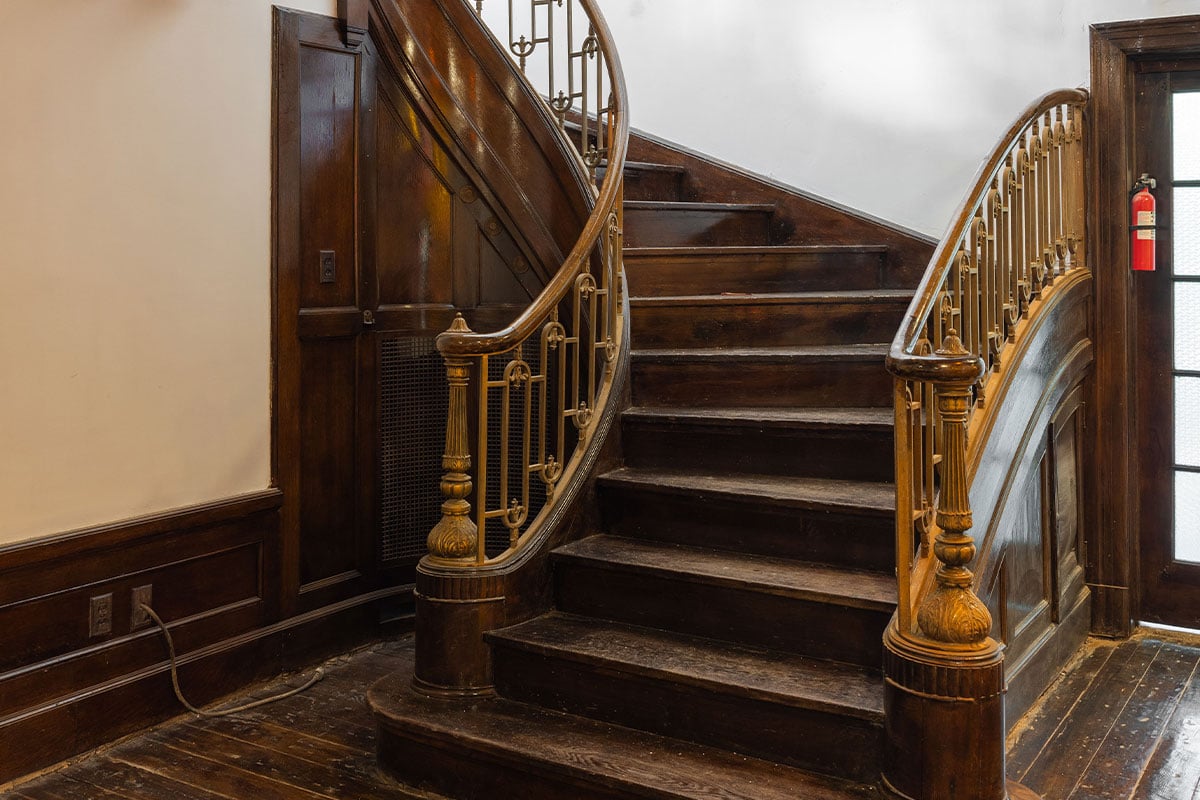

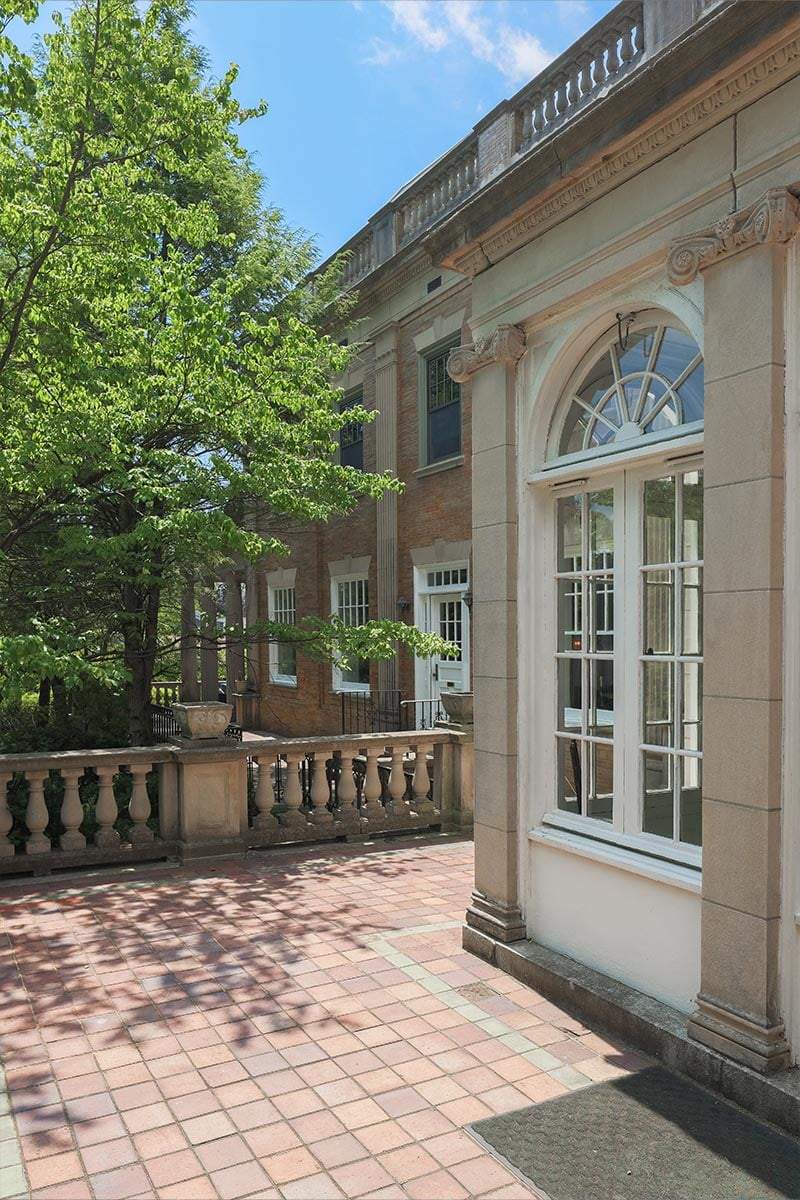
Unfortunately, the Silk King's reign was a short-lived one. Dery was forced into bankruptcy in 1923 when the price of silk declined. His Catasauqua silk mill closed that same year. In 1934 a strike at the mills he managed to retain finished off his business interests and he died virtually penniless in 1942. Dery's mansion would go through a variety of owners and personalities over the next several decades; it was carved up into apartments at one point. During another reincarnation it was a popular venue for wedding receptions. In more recent years, subsequent (and separate) plans to turn the property into a B and B and condominiums seemed promising, but the community's hopes for a rebirth would be dashed time and time again.
When Rousseau purchased the home in 2017, evidence of those stalled plans, along with halfhearted prior attempts to revive the century-old relic, was everywhere. Walls had been knocked down. Floors had been ripped up. Fixtures had been removed. But, thanks to his prior experience with business builds and remodels, Rousseau wasn't completely daunted. “I could see, when a wall is open, why it's been opened,” he says.
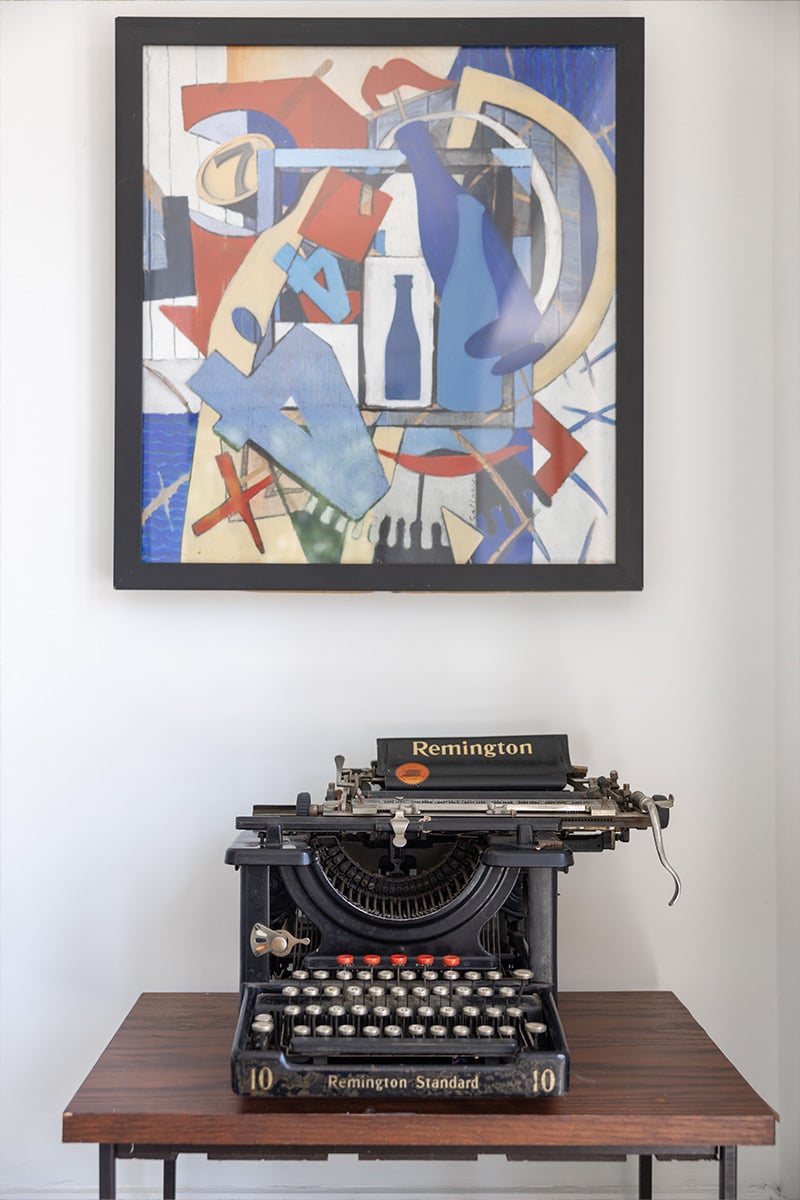
Still, that's not to say there wasn't work to be done—lots of work. When asked what renovations he had made, his response was: “Everything.” It took time to assemble a team of contractors he could trust. And beyond the grunt work that goes into any construction overhaul—fixing the HVAC system, refinishing the hardwood floors, repainting the walls—there would be plenty of aesthetic considerations as well. One thing was for certain—there would be no Victorian vibe in the Dery/Rousseau house. “It bores me. I fall asleep in it,” says Rousseau. Instead, he favors a contemporary vibe that will jibe with the home's antique features. He points to the downstairs ballroom (one of two in the home) as an example of these worlds colliding for the better. An original staircase leads down to the ground floor; someday soon, he hopes to hang one of the modern paintings he favors on the wall beside it. He also envisions a chandelier hanging nearby. Many of the paintings that have already materialized throughout the home are in the style Rousseau prefers. Some, he says, were painted by a close friend. Others are the work of Emily Strong, who has a studio in the mansion.
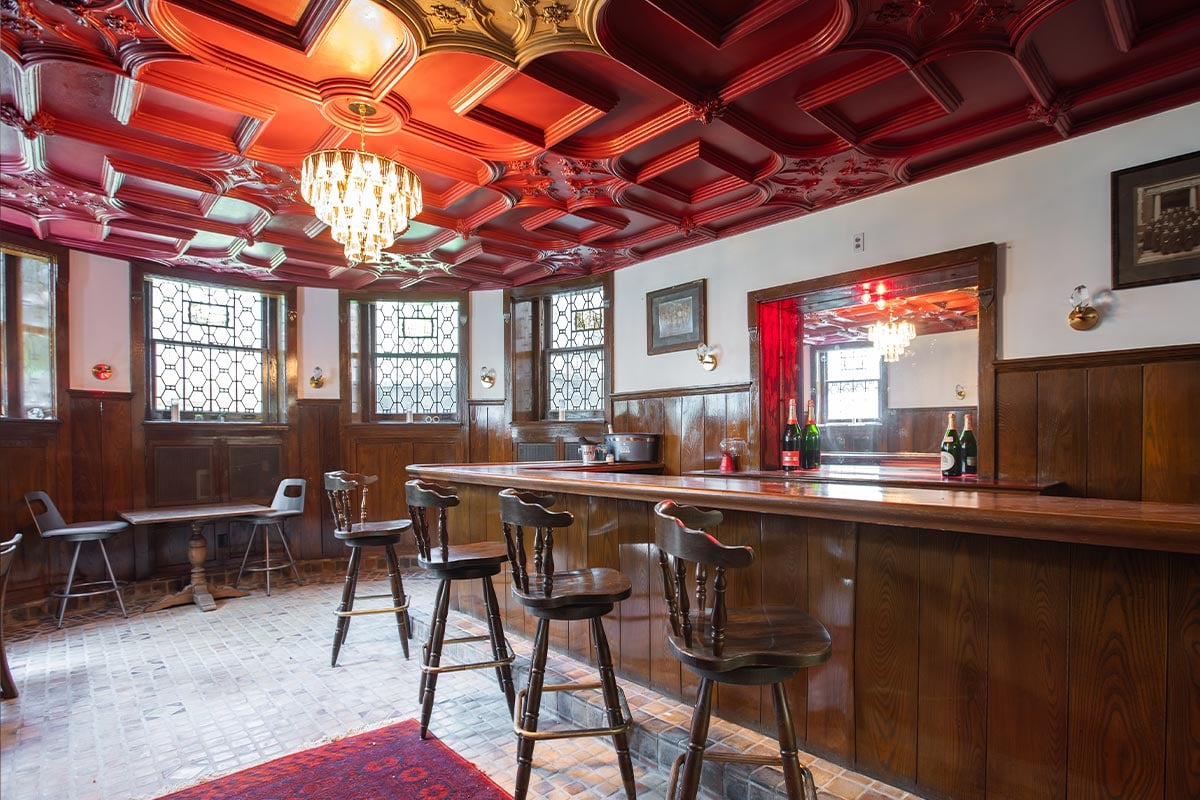
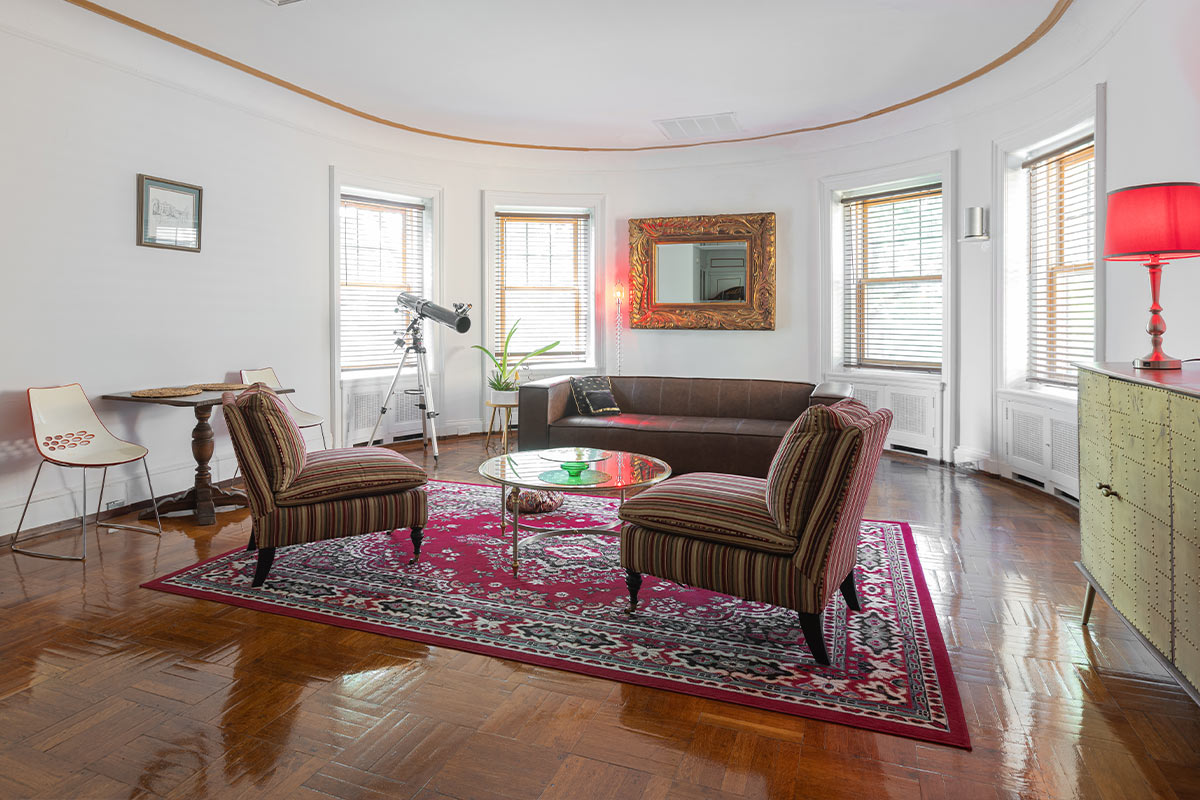
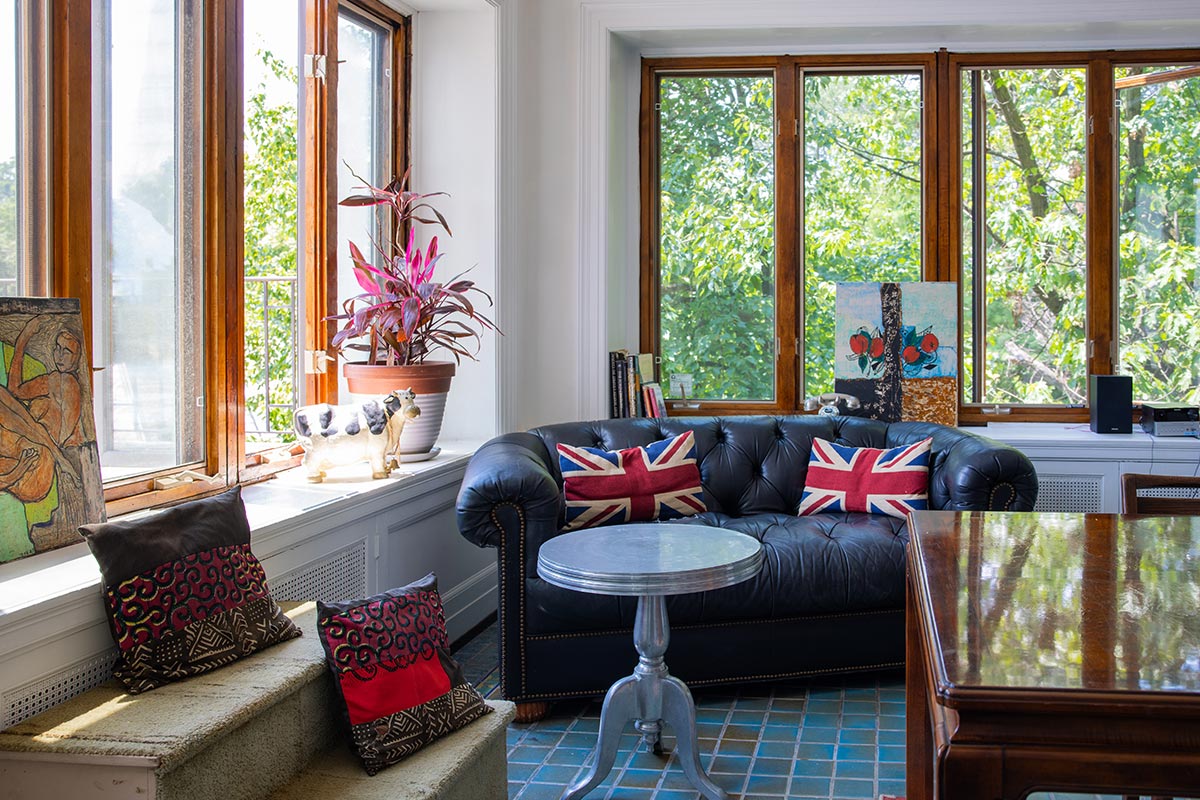
Beyond adding the newer flourishes, Rousseau knows when to hang on to the old stuff, too—the Tiffany skylight and other stained-glass windows remain and add a bright pop of color to the neutral walls and dark wood accents. There's original Moravian tile on the patios and in some of the interior rooms. Ornate plaster molding on the ceiling also harkens back to Dery's days.
There is something magic in this place.
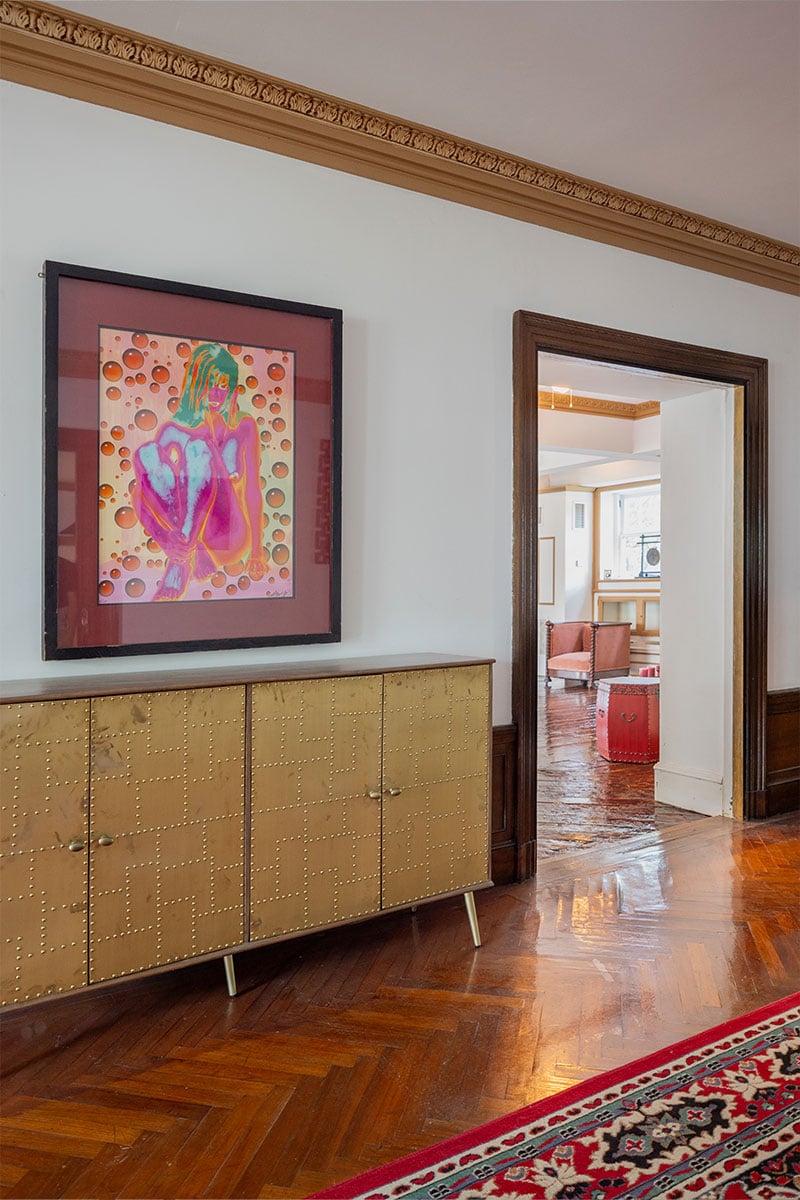
Five years deep into the remodel, Rousseau's diligence is paying off. He estimates about 85 percent of the home is finished, including some eight suites that are available for rental. Among them is Room 208—the very first set of rooms deemed fit for company. As one might expect, there's a framed picture of Dery in the space. But, step into that bathroom, and there's that unexpected modern touch again—what Rousseau laughingly refers to as the “disco” shower head (it lights up in rainbow colors). “Every room is unique,” he says. That includes his own quarters as well; Rousseau has an apartment in the building where he lives part-time. It's made up of what used to be the library and solarium. Dery's former observatory for stargazing has been converted into a bedroom for Rousseau's son.
The areas of the property that Rousseau hasn't gotten to yet include the pool in the basement and the outdoor garden area. He also has plans for the rooftop terrace. But the timeline for those renovations will depend, in part, on the Dery Mansion's success as a business venture. The home also doubles as an event space for parties and special occasions. “All of the money we get from that, we re-invest into making it even better,” Rousseau says. He's eager to show off his “little shack,” as he jokingly calls it, to the Lehigh Valley, and establish it as a community hub. “Every time I come here, I'm happy,” he says. “There is something magic in this place.”
Published as “Inside Herve Rousseau's Dery Mansion” in the September 2023 edition of Lehigh Valley Style magazine.







